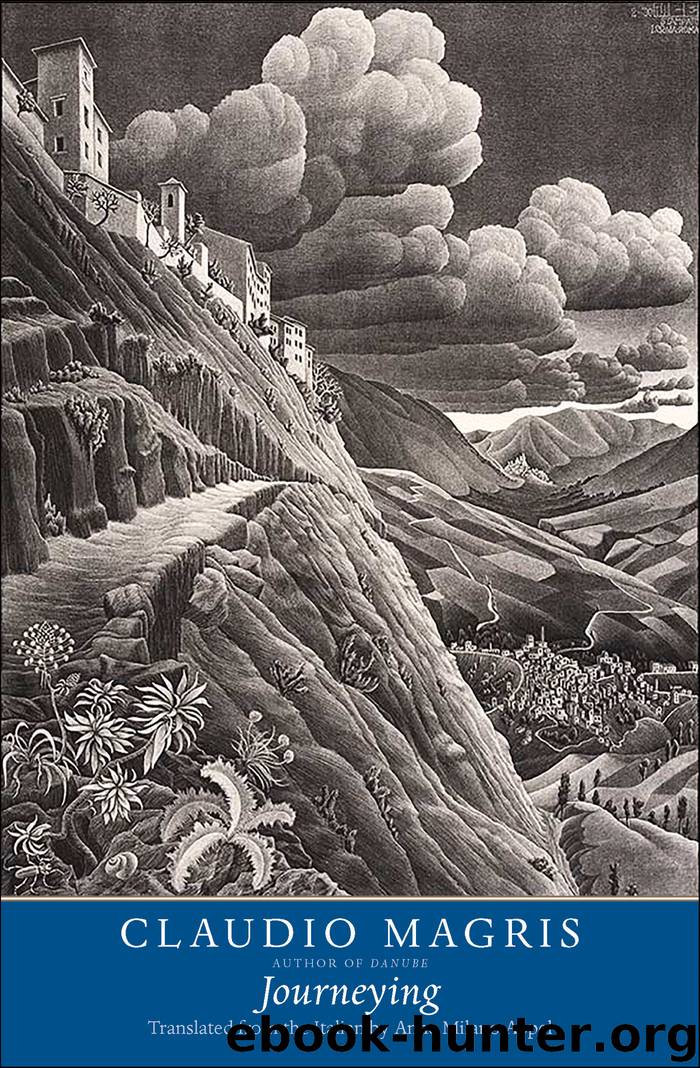Journeying by Claudio Magris

Author:Claudio Magris
Language: eng
Format: epub
Publisher: Yale University Press
Published: 2018-06-09T04:00:00+00:00
ISTRIAN SPRING
In Pula, two hundred yards from the Roman Arena, Guido Miglia shows me his aunt Catineta’s house, where at Easter he would go to eat pinza, the delicate panettone, golden-yellow like a sunflower; now in that house, which has become a mosque, the muezzin proclaims that Allah is the one true God and Muhammad is His prophet. The ancient elements of a city, like the Roman arches and Venetian palazzi in Pula, are like the features of a face, whereas fresh, recent traits, like the mosque, seem like rouge or hair dye, which give the impression they can be removed without altering the face.
Just a short walk is all it takes in Pula to move in and out of different eras and cultures. In the Habsburg era, palazzo Stabal, behind the Arsenal, housed the Austrian Naval Engineers and Admiral Horthy, the maritime strategist of a continental empire that loved the torpid plains more than oceanic distances, and the future fascistoid governor of Hungary.
Situated on the Corso, at 30 via Sergi, now Prvomajska, was the workshop of Colarich, the dreadful serial killer of long ago, daringly captured after an elusive period on the run. Sentenced to life imprisonment, Colarich had been pardoned after many years, and made a living as a glassmaker in that workshop. When parents sent their children to buy or have something repaired, the kids stopped to exchange a few words with the old craftsman, who spoke good-naturedly, blithely unconcerned, as if those distant crimes no longer had anything to do with him and had become blurred and lost in the darkness of the years, like times spent running in the park as a child.
In 1904–1905, James Joyce, as an English teacher, lived on the third floor of 3 via Giulia, now Matko; the nameplate on his door, beside a wall with peeling plaster, now bears the name of a Mr. Modrosan Rude. On the first floor was the editorial office of the Arena di Pola, the newspaper that Miglia as a young man edited in the terrible days preceding the great mass exodus in the winter of 1946–1947: thirty thousand Pulians out of a total city population of thirty-five thousand. Lack of interest and ignorance persist in Italy with regard to the exodus of Italians from Istria, Fiume, and Dalmatia—approximately three hundred thousand people between 1944 and 1954, at different times and in various ways, sometimes more dramatic, sometimes less so, but always extremely sad given the anguish of leaving, the poverty, the future uncertainty, the wretched conditions for years in refugee camps.
The errors and faults of Fascist Italy as well as anti-Slav prejudices preceding fascism were paid for firsthand by those people who lost everything and found themselves in the eye of the storm when the Slavs, oppressed by fascism, took their revenge. As inevitably happens, a trampled nation that rises again gives free rein in turn to an aggressive nationalism, indulging in indiscriminate violence and trampling the rights of others. Italians for centuries have
Download
This site does not store any files on its server. We only index and link to content provided by other sites. Please contact the content providers to delete copyright contents if any and email us, we'll remove relevant links or contents immediately.
How to Read Water: Clues and Patterns from Puddles to the Sea (Natural Navigation) by Tristan Gooley(3469)
Full Circle by Michael Palin(3450)
Into Thin Air by Jon Krakauer(3399)
How to Read Nature by Tristan Gooley(3341)
In Patagonia by Bruce Chatwin(2932)
A Thousand Splendid Suns by Khaled Hosseini(2714)
The Lost Art of Reading Nature's Signs by Tristan Gooley(2692)
Don't Sleep, There Are Snakes by Daniel L. Everett(2608)
The Queen of Nothing by Holly Black(2599)
Venice by Jan Morris(2574)
The Songlines by Bruce Chatwin(2557)
City of Djinns: a year in Delhi by William Dalrymple(2555)
L'Appart by David Lebovitz(2519)
The Big Twitch by Sean Dooley(2437)
Tokyo Geek's Guide: Manga, Anime, Gaming, Cosplay, Toys, Idols & More - The Ultimate Guide to Japan's Otaku Culture by Simone Gianni(2373)
Come, Tell Me How You Live by Mallowan Agatha Christie(2260)
A TIME OF GIFTS by Patrick Leigh Fermor(2206)
INTO THE WILD by Jon Krakauer(2201)
Iranian Rappers And Persian Porn by Maslin Jamie(2199)
